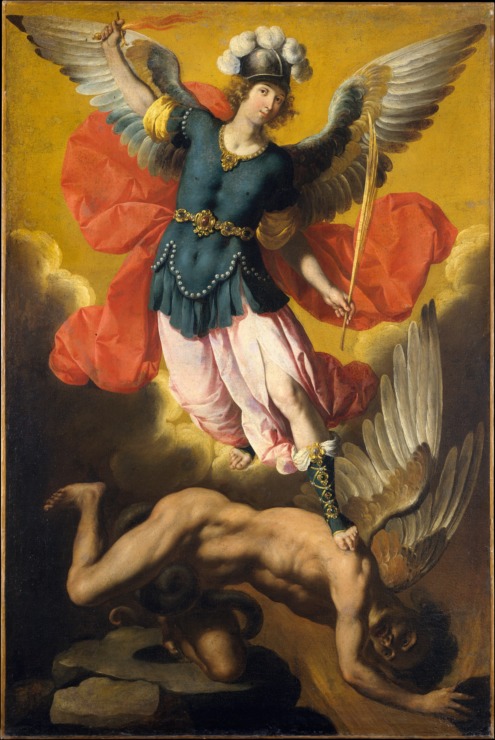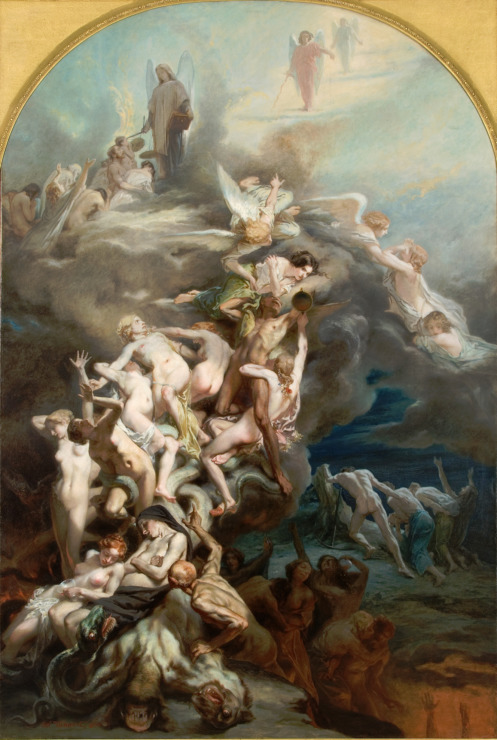The Rose of Peace
If Michael, leader of God’s host
When Heaven and Hell are met,
Looked down on you from Heaven’s door-post
He would his deeds forget.
Brooding no more upon God’s wars
In his Divine homestead,
He would go weave out of the stars
A chaplet for your head.
And all folk seeing him bow down,
And white stars tell your praise,
Would come at last to God’s great town,
Led on by gentle ways;
And God would bid His warfare cease.
Saying all things were well;
And softly make a rosy peace,
A peace of Heaven with Hell.
-WB Yeats
Enjoy Artistic Representations of “The Rose of Peace” by WB Yeats

Saint Michael the Archangel by Ignacio de Ries, 1640s

Heaven and Hell by Octave Tassaert, 1850.
Listen to this Reading of “The Rose of Peace”
Listen to this Musical Interpretation of “The Rose of Peace” by WB Yeats
About W.B. Yeats
William Butler Yeats was born in 1865 in Dublin into a family of the Protestant Anglo-Irish landowning class. He lived in Dublin and London during his growing up years. He was very much affected by the politics of the time, as he was a young adult when the protestant minority in power began to be displaced by the predominantly Catholic nationalist movement.
Yeats studied law for a time but eventually moved to London to study art. He was an accomplished playwright, and a founder of the Irish Theatre which was later to become the Abbey Theatre. While he is better known for his poetry, Yeats was awarded the Nobel Prize for Literature in 1923 more for his theatrical works than his verse. He was the first Irishman to be awarded the prize.
His first collection of poems was published in 1889, and there is strong evidence of the influence of Edmund Spenser and Percy Bysshe Shelley. Later, his poetry became more rooted in realism and the physical, with influence of Ezra Pound and William Blake apparent. Common themes in his poetry include mysticism, spiritualism, the occult and Irish identity and nationalism.
Yeats was appointed to the Irish senate in 1922. He was married, but had an ongoing relationship of sorts with a former love, Irish activist and revolutionary Maud Gonne. Known as one of the greatest poets of the 20th century, Yeats died in 1939.
That’s it for The Rose of Peace!
BUY ‘HOW TO WRITE A FORM POEM’ NOW!
